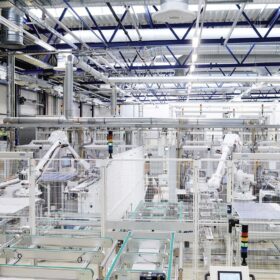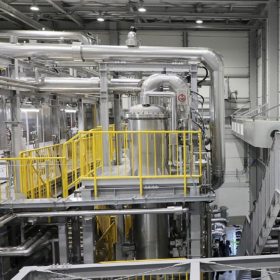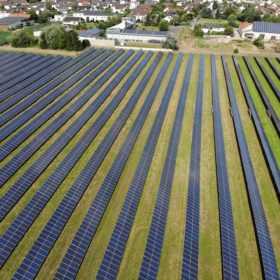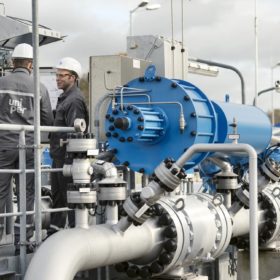Weekend Read: Waiting is not an option
In May 2022, PV experts from around the world convened in Germany for the third Terawatt Workshop. Almost one year later, takeaways from discussions at the workshop – combined with a wide-ranging review of research on decarbonization pathways, energy demand projections, and the state of the art in PV technology – led to the conclusion that 75 TW of installed solar capacity by 2050 was a realistic global target. More than 50 leading PV industry figures recently outlined the opportunity and the challenges that solar will face in reaching this goal.
Solar the energy workhorse in latest gloomy IPCC verdict
Photovoltaics can wipe out 4.25 billion tons of carbon emissions every year this decade, according to the UN Intergovernmental Panel on Climate Change. Even so, the actions announced so far remain way short of what is needed, with capital flows to fossil fuels still greater than the cash directed toward combating climate change.
Demand, policies, investment key to green hydrogen development
Ruchi Gupta is a research fellow at the University of Geneva’s Institute for Environmental Sciences. She focuses on how flexibility options, such as sector coupling with hydrogen production, can support renewable energy integration and decarbonize a wide range of sectors.
Breaking the rules to foster green hydrogen innovation
The Danish Energy Agency has granted permission, to two power-to-X specialists, for the development of innovative projects without having to comply with the country’s energy legislation. This exemption is part of an upcoming pilot scheme to support new clean energy technologies, including green hydrogen.
New Siemens units lay marks in hydrogen generation, mobility and energy-as-a-service
With a flurry of recent announcements, the newly-launched power division of the electronics giant plans to drive hydrogen mobility in Germany and enter the commercial and industrial power market in the US.
IEA report appears to acknowledge 2050 net zero may be beyond us
A study into the clean energy tech innovation rate required to keep global heating under control may suggest concepts such as lithium-air could yet keep us to the mid-century ambition, but it is also starting to contemplate the temperature rise to be expected if we only achieve net-zero by 2070.
Would solar decarbonize French energy – or just replace nuclear?
A thinktank has studied whether increased solar energy would contribute significantly to reducing the carbon footprint of the French and European electricity systems in an attempt to respond to a common French refrain the nation needs no further decarbonization of energy because it has nuclear power.
Europe can be 60% powered by solar before 2050
Perhaps it is not surprising a report co-produced by Europe’s solar industry places PV at the heart of a zero-carbon, mid-century energy system on the continent. However, the study does flesh out two out of three scenarios in which becoming carbon-neutral by 2050, or even 2040, could be possible.
Bringing green hydrogen to market
German companies Uniper and Siemens will cooperate on joint projects to advance the use of green hydrogen and sector coupling. Conventional, gas-fired hydrogen production plants will be gradually transformed as part of the initiative.
UK deals for vanadium redox flow merger and electric vehicles announced
English partners appear to be in demand with a London-based vanadium flow supplier tying up with a U.S. partner just as an automotive design company in Coventry announces plans for electric and hydrogen vehicle production in the West Midlands.










